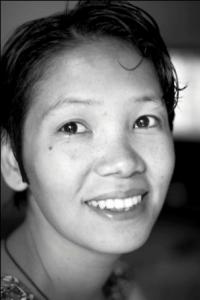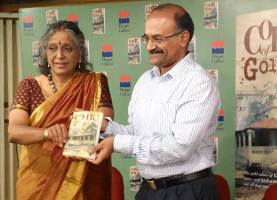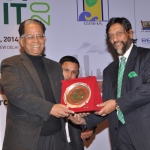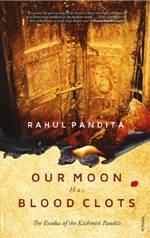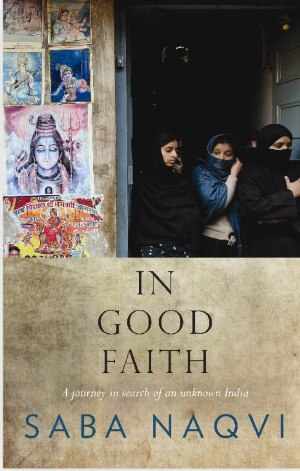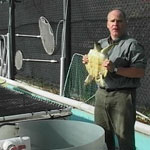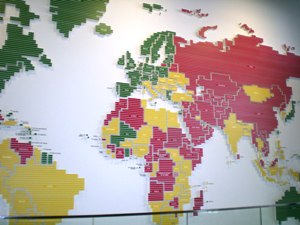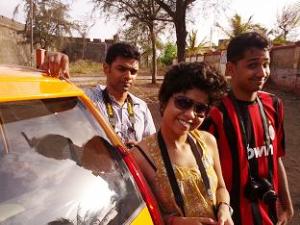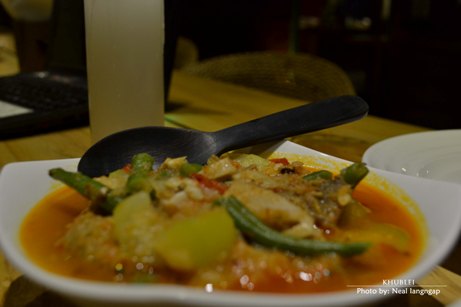For several days now, avid readers of The Thumb Print have been furiously debating a report entitled NRHM Woes, which details the horrifying experience of a group of social workers on a visit to Bokakhat when they met a woman who faced problems with her pregnancy. The woman was forced to travel a great distance over extremely bad roads to reach a health centre and lost her child in the process.
The reactions have ranged from support to the writer, exchange of experiences other readers have had and general comments on how the health mission must be improved.
But, by far, the most interesting responses are official: from government officers who initially expressed anger at the ‘sensational’ report. Officials of the mission wrote in – perhaps in their personal capacity – literally debunking the story. Some comments the blog elicited even questioned the credentials of the writer!
It was after the writer stated repeatedly in the ensuing discussion on The Thumb Print and in television channels that she meant no disrespect to the NRHM, that the official tone changed and now, comments on her report seem to be more conciliatory and more amenable to her original point: that there are alarming gaps in the delivery of health services and these must be rectified!
That is all for the good, but some of these official reactions have stayed with me – especially the ones that question the veracity of the report merely because the writer was not a ‘journalist’. Why would one doubt such a shocking account – graphic in its intensity and detailed as it is – when it manages to ask all the five ‘W’s and the H’ that is mandatory for any good journalistic account?
Perhaps it is because the report was too true to be good? Bad news is unpalatable and the first reaction is to disbelieve it, discount it, doubt it - more so when it shows up bureaucratic inefficiency and if that’s a tautology, forgive me!
Well, bureaucrats will prevaricate and do a lot else that is part of their job description so let’s not rob them of their work. But surely it is time to give the citizen journalist her due? The numerous prefixes to the term ‘journalist’ help denote a range of people in the information media scape today – the independent journalist, the activist journalist or even the contextual journalist…
Today’s bloggers and writers, videographers and audio recorders are documenting a range of experiences, events, issues and voices - some skillfully, some clumsily but all with a lot of passion! Who else will care to write, primarily for oneself, often for free or without any commercial interest in mind, put it out in public or share with friends with just a fuzzy idea of who her readers will eventually be or who will stumble on her post?
Their writings, often located in the first person, are an expression of their feelings and views. Sure, their experiences and expression will be scrutinized and must be evaluated if they are shared with others. If they strike a chord, they will secure a wider circulation. Take a look at all the ‘likes’ on Facebook, which is a misnomer as they don’t necessarily denote one’s liking for the content but one’s agreement with the importance of the issue that came up.
Bloggers write (or video graph) from their point of view so the question of objectivity, long touted as a cornerstone of good journalism, is eschewed completely by them. We are easy enough with our approvals when we are discussing opinions but what happens when the writer is reporting on an issue or event?
Here, the criteria for doing so must be clearly located in principles of fairness and accuracy. These are perfectly good principles for good journalism so why can’t they be applied to bloggers or citizen journalists too?
‘Legal’ threats to free speech
Another aspect of the responses to ‘NRHM woes’ was that the article was sensationalist and had breached the privacy of the woman by photographing her. The underlying message in the official response hinted at possible action against the writer but of course, better sense has prevailed.
Which brings us to the question of rights of journalists, bloggers, independent journalists, activist journalists and all others of our ilk. Our freedom to write and to express ourselves is increasingly being compromised by a number of forces – from vigilante groups and individuals who adopt all manner of street-level tactics to silence those they don’t like, trolls who stalk the ‘net to harass writers and commentators with dissenting views and others who are wont to file frivolous complaints in far-flung places.
Guess who or what provides these offence-takers of online media content with all the help in their ignoble task? None other than our state, armed as it is with the draconian Information Technology Act, 2000. Much has been written on how the act draws into a single net, all manner of online content – text, visuals or audio and does not define content that ‘is grossly offensive or has menacing character(Sec 66 (a))or the due diligence intermediaries need to exercise due diligence if any content ‘is grossly harmful, harassing, blasphemous defamatory, obscene, pornographic, paedophilic, libellous, invasive of another's privacy, hateful, or racially, ethnically objectionable, disparaging, relating or encouraging money laundering or gambling, or otherwise unlawful in any manner whatever…(Sec 79 (2)).
When the law works against free speech, it is more than important to speak up…as all the commentators on The Thumb Print recently did.
Find us on facebook: facebook.com/TheThumbPrintMag






